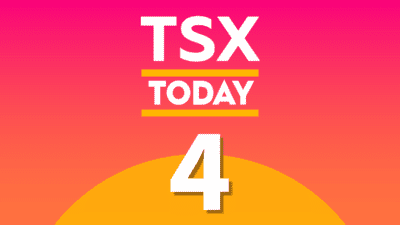Things are heating up in the dollar store sector in the United States.
It started in July, when Dollar Tree, Inc. (NASDAQ: DLTR) offered to buy competitor Family Dollar Stores, Inc. (NYSE: FDO) for $74.50 per share, a 25% premium on the company’s closing price. Not to be outdone, yesterday Dollar General Corp. (NYSE: DG) announced an even sweeter bid for Family Dollar, coming in at approximately $78.50 per share.
As I type this, Family Dollar trades at a little above the offer price, at nearly $80 a share. The market anticipates either Dollar Tree coming forward with an even sweeter bid than the $9 billion its competitor already has on the table, or somebody like Wal-Mart Stores, Inc. (NYSE: WMT) coming in and outbidding everyone.
It’s obvious that the dollar store story in the United States is now one of consolidation. The sector experienced terrific growth after the 2002 and 2008 recessions, as cash-strapped customers looked for the lowest price possible on necessities. Thousands of stores opened up across the country. Now, sales are flat at best, and companies in the sector just aren’t growing anymore.
Which is why the loser of this battle should look to Dollarama Inc. (TSX: DOL) as a consolation prize.
Of course, calling Dollarama a consolation prize is a disservice to the terrific job its management has done. The chain currently boasts more than 800 stores, with another 100 scheduled to open over the next couple of years. Same-store sales growth is terrific, coming in at 3.3% in the most recent quarter, with overall sales up 12%. Earnings were up 25% compared to last year, and margins grew fatter as well.
Considering the tough Canadian retail environment, those are some terrific numbers.
Unlike in the U.S., Canada’s dollar store format still has plenty of room for growth. One analyst predicted that Canada could support more than 1,700 dollar stores over the medium to long term — about a 50% growth potential. Based on that, U.S.-based dollar stores should be practically salivating at the opportunity.
Of course, Dollar Tree is already in Canada, thanks to its 2010 acquisition of Dollar Giant, a small operator with 80 stores. Growth has been somewhat slow — at least, slow compared to Dollarama’s blistering pace — but Dollar Giant has grown to more than 180 locations across Canada. At least one of the American players sees the potential in Canada.
There are two possible ways this could end.
The first one is that Dollarama simply gets acquired by whoever loses out on the Family Dollar sweepstakes. Dollarama’s current market cap is $6.2 billion, meaning the winner would spend approximately the same amount of cash to acquire it as would have been spent to acquire Family Dollar, once you factor in the premium that would need to be paid.
Dollar General is the logical choice to acquire Dollarama, since Dollar Tree already has a presence in Canada. Dollar Tree buying out Dollarama would give it a dominant position in the market — one the feds might not be interested in granting to a foreign owner.
As it stands right now, Dollar General is in the lead for Family Dollar. If it does go through with this acquisition, it won’t buy Dollarama. The logical response to that is Dollar Tree investing to beef up its presence here and opening new stores aggressively. This could end up hurting Dollarama, at least in the short term.
Dollarama is a terrific company, and is truly one of Canada’s best retailers. If I were Dollar General’s management and I lost out on Family Dollar, I’d immediately try to acquire Dollarama. If that happens, investors who buy now are going to be very happy. If not, look for weakness as competition heats up.







